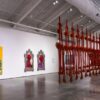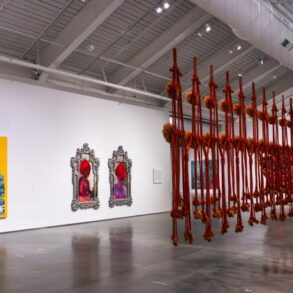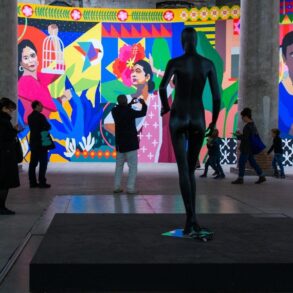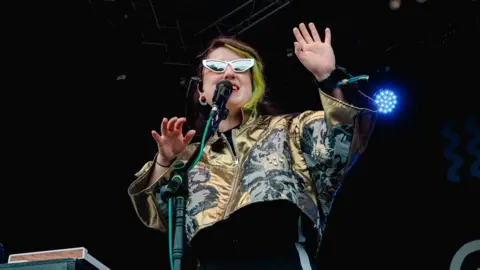 Kirsty McClachlan
Kirsty McClachlanArtists performing at one of Wales’ best-known festivals have said there is still a lot of work to do to close the gender gap in the music industry.
Research suggests there are almost three times more male bands and solo artists than women playing the festival circuit this summer.
Music company A2D2 looked at 20 festivals playing across the UK this year and found, on average, for every three male acts there was only one female band or solo artist.
Green Man Festival, which is on this weekend in Bannau Brycheiniog, also known as the Brecon Beacons, said it compiled its data differently, with female, non-binary and female-majority bands comprising almost half its line-up.
One Welsh band booked this year at Green Man on the Glanusk estate, near Crickhowell in Powys, are HMS Morris.
They are fronted by Heledd Watkins, who said the gender gap had improved on the circuit in the past few years, but there was still work to be done.
“I don’t see how you’re not able to put an equal line-up together because there are bands there and they should be given a platform,” she said.
“Normally I think women are placed on little stages on corners of festivals.
“Not that often do we see women headlining the main stages. We did in Glastonbury this year – that was awesome.
“Young people need to be going to these festivals and seeing women headlining the stages and women need to be given the chance just to prove to themselves that their music is good enough to be on those stages because there’s still a lot of self-doubt.”
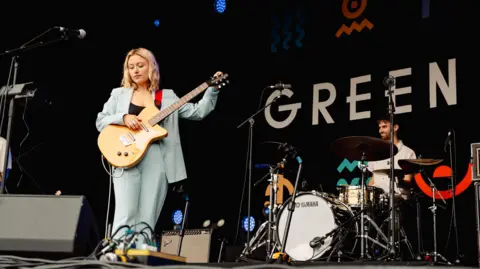 Nici Eberl
Nici EberlGillie Rowland, another artist playing this weekend, agreed women needed encouraging to see themselves in the industry – especially in crew and tech roles.
She said she noticed the gender gap when she studied popular music at Goldsmith’s in London: “I was one of two women studying music technology with 10 male students.
“There’s a lot of work to do. What I feel there needs to be more of, not so much putting women on the line-ups, although do that as well.
“We want young women getting into [the industry] so there’s an encouragement from the bottom up.
“So we don’t have to think, ‘that’s a woman, we’ll stick her on the line-up’, obviously great – do that anyway – but I think it has to be a whole upheaval in the way our society has taught women to think about music.”
Dionne Bennett is chairwoman of Ladies of Rage, a Cardiff-based musicians’ collective that champions under-represented women and non-binary artists.
She called the low number of female acts at major festivals “deeply frustrating and indicative of persistent biases in the industry”.
“It’s disheartening to see how slow progress has been in mainstream spaces like festivals, but it also motivates us to keep pushing for change,” she added.
“We are actively working to dismantle these barriers and to create more opportunities for women and marginalised communities to be seen, heard, and celebrated.”
Fiona Stewart, the owner and managing director of Green Man, said: “The challenges faced in ensuring there is fair representation for all is a societal issue, and something we constantly try to address.”
She said Green Man was the first UK festival to have 50-50 gender split, with more than 50% of last year’s acts comprising of female and non-binary artists and 46% this year.
“Green Man is an event with inclusivity at its very core, and our work around this will always be a priority for us,” she added.

